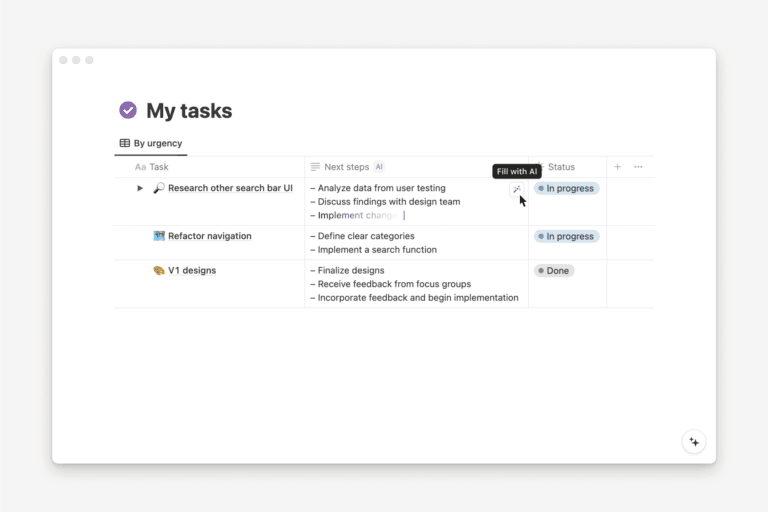Overcoming Imposter Syndrome: Practical Strategies for Enhanced Productivity
Introduction
In today’s fast-paced professional landscape, productivity serves as a cornerstone for personal and organizational success. For many, the path to achieving optimal productivity is often obstructed by a phenomenon known as imposter syndrome— a psychological pattern where individuals doubt their skills, accomplishments, or talents, often feeling like a fraud among their more accomplished peers. The consequences of this debilitating mindset can impede performance, erode confidence, and stifle creativity, creating a cycle that is difficult to break.
Having worked in various industries, I have personally navigated the murky waters of imposter syndrome. The haunting feeling that I am not as capable as my colleagues has often clouded my ability to work efficiently, despite outward appearances of competence. This sense of inadequacy can be particularly pervasive in high-stakes environments where the pressure to excel is enormous. However, the journey to overcoming these feelings has unveiled a wealth of strategies that can facilitate enhanced productivity and personal growth.
This blog post is crafted to provide actionable insights aimed at helping individuals recognize and combat imposter syndrome effectively. By exploring practical strategies that allow for the cultivation of self-acceptance and confidence, we can begin to dismantle the barriers that impede productivity. Each section of this blog will delve into specific techniques, psychological frameworks, and experiences designed to resonate with those facing similar challenges.
We invite readers to engage with the content, as it addresses both the emotional and practical dimensions of productivity affected by feelings of inadequacy. Anticipation builds as we prepare to share valuable resources that can empower each of you in your quest to attain lasting productivity and self-assurance in your professional journey.
Understanding Imposter Syndrome
Imposter syndrome is a psychological phenomenon characterized by persistent feelings of self-doubt and inadequacy, despite evident achievements or external validation. Individuals experiencing this condition often attribute their success to luck, timing, or deception rather than their competencies. Research indicates that this syndrome affects a significant portion of the workforce, with nearly 70% of people experiencing such feelings at some point in their careers.
The roots of imposter syndrome can be traced to various factors, including personality traits, family background, and social pressures. For instance, perfectionism often drives individuals to set unrealistically high standards for themselves, leading to chronic self-criticism when those expectations are unmet. Furthermore, cultural and societal factors can exacerbate these feelings, particularly in environments where competition is fierce or where there are stereotypes regarding one’s capabilities based on gender or ethnicity.
The effects of imposter syndrome can be detrimental, both personally and professionally. Individuals may experience anxiety, depression, and a decline in self-esteem, which can hinder their ability to take risks or pursue new opportunities. In the workplace, this self-doubt can stifle innovation, reduce productivity, and even lead to employee turnover as talented individuals may feel unworthy of their roles. Organizations that overlook the prevalence and impact of imposter syndrome risk losing valuable human capital and creativity.
By comprehensively understanding imposter syndrome, its causes, and its potential ramifications, individuals and businesses can begin to identify and implement strategies that promote a healthier mindset. Addressing this issue is crucial to fostering a professional environment that encourages growth, collaboration, and enhanced productivity.
The Impact of Imposter Syndrome on Productivity
Imposter syndrome is a pervasive psychological pattern experienced by many individuals in various professional settings. It manifests as a persistent feeling of self-doubt, insecurity, and the fear of being exposed as a ‘fraud’ despite evident accomplishments. This phenomenon significantly hinders productivity, often leading to adverse effects on work performance, motivation, and mental health.
One of the most immediate impacts of imposter syndrome is the decline in overall work performance. Individuals who experience these feelings may struggle to complete projects efficiently, perpetually second-guessing their decisions. This doubt often causes procrastination as they fear negative evaluations from peers and supervisors, leading to missed deadlines and a compromised quality of work. For instance, an employee might delay submitting a well-prepared report, fueled by the belief that their insights are unworthy or lack originality, ultimately impacting their professional reputation.
Additionally, motivation can be drastically affected by imposter syndrome. When individuals feel like an imposter, they might withdraw from seeking new opportunities, whether that be taking on challenging projects or pursuing promotions. Instead of striving for personal and professional growth, they may choose to remain in their comfort zones, limiting their potential and stunting their career development. This self-imposed limitation is often exacerbated by the comparison with colleagues who appear more competent or assured, further feeding their insecurities.
Moreover, the mental health of those plagued by imposter syndrome is frequently compromised. Chronic stress, anxiety, and a lack of confidence can lead to long-term emotional and psychological issues. This negative state of mind not only impacts day-to-day productivity but can also lead to burnout, a prevalent concern in today’s fast-paced work environment. Therefore, acknowledging and addressing the influences of imposter syndrome is essential for improving individual performance, fostering motivation, and promoting a healthier work environment.
Actionable Steps to Overcome Imposter Syndrome
Overcoming imposter syndrome involves practical strategies designed to empower individuals in their personal and professional lives. By implementing these actionable steps, readers can begin to reshape their self-perception and enhance their productivity.
First, it is essential to recognize and acknowledge imposter feelings. Keeping a journal can be a powerful tool in this process. When self-doubt arises, documenting these feelings allows for a better understanding of triggers and patterns. For instance, if certain situations at work consistently elicit feelings of inadequacy, jotting down experiences can help in identifying specific areas that require empowerment or skill enhancement.
Next, reframing negative thoughts into constructive ones is crucial. Instead of thinking, “I don’t deserve this position,” replace it with, “I earned this through my hard work and skills.” This shift in mindset fosters a positive outlook and can significantly enhance overall productivity. For example, creating affirmations or reminders of personal achievements around one’s workspace can serve as constant motivation to counter imposter feelings.
Another effective strategy is to seek out mentorship or support. Engaging with a mentor who has navigated similar experiences can provide invaluable insights and reassurance. This relationship offers a space to discuss challenges openly, allowing for shared experiences and validation. Moreover, joining professional groups or forums allows for connection with like-minded individuals facing comparable challenges, further alleviating feelings of isolation.
Lastly, setting realistic goals is fundamental. Establishing attainable, measurable objectives aids in building confidence and providing clear benchmarks for progress. Celebrate small wins along the way, as these moments reinforce a sense of accomplishment and capability. For instance, if a project is completed successfully, acknowledging this achievement can significantly reduce feelings of fraudulence and build self-esteem.
By taking these actionable steps, individuals can effectively tackle imposter syndrome, paving the way for increased productivity and a fulfilling work experience.
Strategies for Building Self-Confidence
Building self-confidence is fundamental in overcoming imposter syndrome and enhancing productivity. Utilizing various strategies can empower individuals to combat feelings of inadequacy and foster a more positive self-image. One effective method is the practice of positive affirmations. By consistently repeating empowering statements about one’s abilities and accomplishments, individuals can gradually reshape their internal dialogue. Affirmations should be specific, relevant, and rooted in reality to be truly impactful. For instance, turning the statement “I am not good enough” into “I have unique skills and strengths that contribute to my success” can mitigate negative thoughts.
Another valuable technique involves visualization practices. This process includes imagining oneself achieving specific goals or successfully navigating a challenge. By creating a mental image of success, individuals can familiarize themselves with the feelings associated with accomplishment. Visualization can also enhance performance by increasing motivation and self-belief. Regularly dedicating time to visualize positive outcomes in both personal and professional contexts can be transformative in building self-confidence.
Seeking constructive feedback from peers or mentors is another effective strategy. Engaging in open conversations allows individuals to gain insight into their strengths and areas for growth. Feedback serves as an external validation of one’s abilities, often countering the internal narratives fueled by imposter syndrome. It is essential to approach feedback with an open mind, recognizing it as a tool for personal and professional development rather than criticism.
Incorporating these strategies into daily routines can significantly enhance self-confidence. The combination of positive affirmations, visualization, and seeking feedback creates a robust framework for individuals struggling with self-doubt. By consistently utilizing these techniques, one can begin to shift their mindset towards a more confident and purpose-driven approach, ultimately leading to enhanced productivity.
Tools to Boost Productivity
Overcoming imposter syndrome often requires not only introspective strategies but also practical tools that facilitate enhanced productivity. A range of digital applications have emerged to assist individuals in managing their work more effectively, thus alleviating the stress and self-doubt associated with perfectionism and imposter feelings.
One of the most popular tools in productivity enhancement is project management software. Applications such as Trello and Asana provide users with a visual overview of their tasks, allowing for better organization and prioritization. These platforms enable individuals to break down larger projects into smaller, manageable tasks, fostering a sense of accomplishment and progress, which is particularly beneficial for those struggling with imposter syndrome.
Time management tools also play a crucial role in productivity improvement. The Pomodoro Technique, which encourages focused work sessions followed by short breaks, can be effectively implemented using apps like Focus@Will or Forest. By managing time efficiently, users not only maintain their attention but also create an environment conducive to self-awareness regarding their accomplishments, helping to challenge negative self-perceptions tied to imposter syndrome.
In addition to task and time management tools, mindfulness and mental well-being apps, such as Headspace or Calm, can aid in reducing anxiety and boosting overall productivity. These platforms offer guided meditation and relaxation exercises that promote mental clarity, allowing individuals to combat feelings of inadequacy and enhance their focus on tasks at hand.
Furthermore, to support collaborative efforts and communication, tools like Slack or Microsoft Teams facilitate seamless interactions, fostering a supportive community that can help mitigate feelings of isolation often felt by those grappling with imposter syndrome. When individuals feel supported and connected, their confidence levels can increase, further enhancing productivity.
Common Pitfalls to Avoid
When addressing imposter syndrome, individuals often encounter various pitfalls that can hinder their progress and productivity. One common mistake is the tendency to compare oneself unfairly to others. This detrimental habit can exacerbate feelings of inadequacy, as it creates an environment where one overlooks their unique strengths and achievements. Instead of fostering a sense of personal growth, such comparisons can lead to increased stress and self-doubt.
Another frequent error is the avoidance of seeking support or mentorship. People grappling with imposter syndrome may feel reluctant to share their struggles, fearing that doing so will expose their perceived inadequacies. However, reaching out for guidance from peers or mentors can provide invaluable insights and encouragement that help combat these feelings. Engaging in open conversations about experiences can normalize the challenges faced and create a supportive network that promotes resilience.
Additionally, setting unrealistic expectations is a prevalent pitfall. Individuals may strive for perfection, believing that anything less casts doubt on their abilities. This mindset can lead to burnout and decreased productivity, as it becomes challenging to meet the unattainable standards they impose upon themselves. Embracing a more realistic approach by recognizing that mistakes are part of the learning process can lead to personal growth and improved efficiency.
Moreover, neglecting self-care while battling imposter syndrome can further perpetuate feelings of inadequacy. People often prioritize work over their well-being, leading to physical and mental exhaustion. It is essential to incorporate self-care practices into one’s routine, as they serve to recharge and maintain focus. A balanced approach to work and personal health is vital for long-term success and productivity.
Avoiding these common pitfalls can significantly impact one’s ability to overcome imposter syndrome while enhancing overall productivity. Awareness and proactive measures are crucial to navigating this complex emotional landscape effectively.
The Importance of a Supportive Network
Building a supportive network is vital for individuals experiencing imposter syndrome. A sense of community serves as a refuge where one can share feelings of inadequacy and seek validation. Connections with peers, mentors, and industry professionals facilitate the exchange of experiences and advice, enabling individuals to recognize their worth and achievements more clearly. By forming these relationships, one not only combats the isolation often felt during imposter moments but also fosters a culture of encouragement and empowerment.
Mentorship, in particular, plays a crucial role in the journey of overcoming imposter syndrome. A mentor provides insights from their own experiences, reassuring individuals that they are not alone in their struggles. Through honest conversations and shared struggles, a mentor can help reshape negative perceptions and instill a stronger sense of confidence. Furthermore, these relationships can be tremendously beneficial in understanding the nuances of professional growth, equipping individuals with tools to navigate their careers more effectively.
In addition, collaborations within a supportive network can magnify personal and professional development. Engaging with others allows for the sharing of diverse perspectives and skill sets, enriching one’s own knowledge base. Collaborating with colleagues or participating in group projects can help reduce feelings of inadequacy, as successes are often celebrated collectively. This sense of community diminishes the focus on individual flaws and emphasizes shared achievements, ultimately fostering a stronger belief in one’s capabilities.
To cultivate a supportive network, individuals should actively seek relationships within their professional environments, participate in community outreach, or join industry-specific groups. Demonstrating vulnerability while sharing challenges can be a gateway to deeper connections. Building these relationships offers a foundational strength that enables individuals to face their internal challenges, including those posed by imposter syndrome, with resilience and confidence.
Conclusion and Call to Action
In this blog post, we have delved into the multifaceted issue of imposter syndrome, a psychological pattern where individuals doubt their accomplishments and fear being exposed as a “fraud.” Through our exploration, we have highlighted effective strategies to combat this common experience. Recognizing the prevalence of imposter syndrome is the first step; it is essential to understand that many successful people share these feelings. We emphasized the importance of reframing negative thoughts, celebrating successes, and seeking support from peers or mentors as ways to enhance one’s self-efficacy.
Furthermore, we discussed the significance of setting realistic goals and acknowledging that perfection is often unattainable. Practicing self-compassion and fostering a growth mindset were presented as foundational elements in overcoming feelings of inadequacy. By implementing these strategies, individuals can not only improve their productivity but also cultivate a more positive and assertive self-image, which is crucial in both personal and professional settings. These approaches encourage a shift towards viewing one’s abilities and achievements through a lens of realism and appreciation rather than scepticism.
I invite you to join the conversation. Have you experienced imposter syndrome, and if so, what methods have you found helpful in navigating these feelings? Your insights, stories, or additional strategies could be invaluable to others facing similar challenges. Please leave your comments below and feel free to share this post with your networks. Together, we can foster a supportive community where we uplift each other in our journeys towards greater self-acceptance and productivity.
Avi is a researcher educated at the University of Cambridge, specialising in the intersection of AI Ethics and International Law. Recognised by the United Nations for his work on autonomous systems, he translates technical complexity into actionable global policy. His research provides a strategic bridge between machine learning architecture and international governance.







